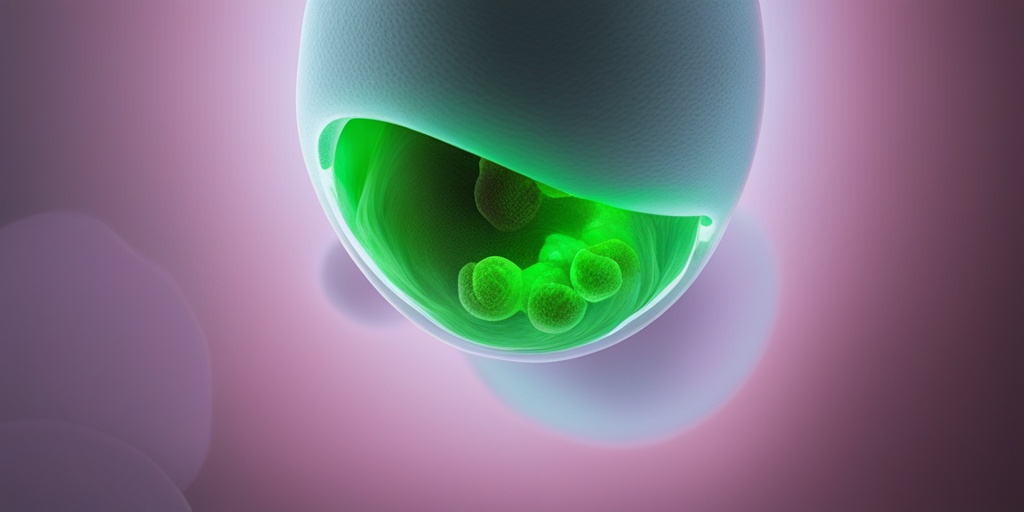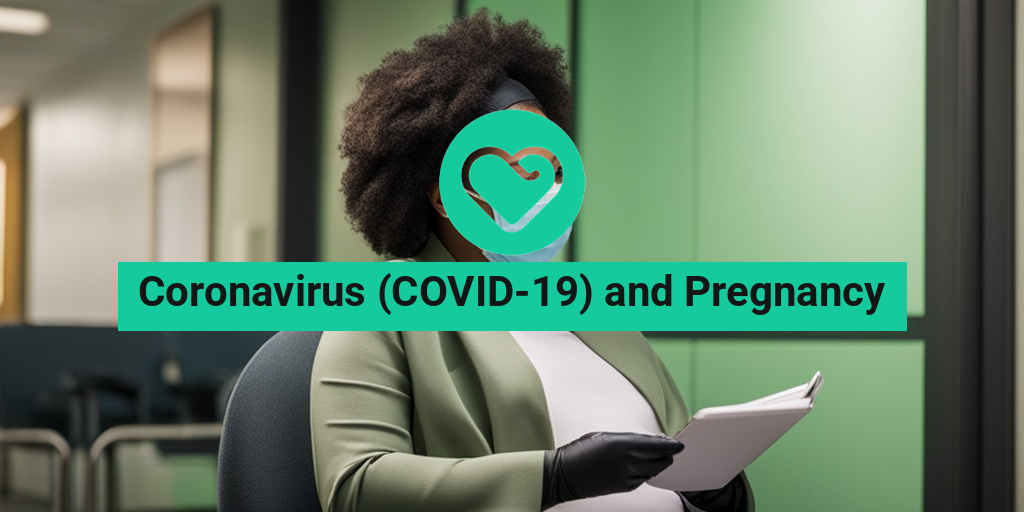What Is COVID-19 and How Does It Affect Pregnancy?
As the world continues to grapple with the COVID-19 pandemic, pregnant women are naturally concerned about the risks and implications of the virus on their health and that of their unborn baby. In this article, we’ll delve into the world of COVID-19 and pregnancy, exploring what COVID-19 is, how it affects pregnant women, and what precautions expectant mothers can take to stay safe.
What is COVID-19?
COVID-19, short for Coronavirus disease 2019, is a respiratory illness caused by the SARS-CoV-2 virus. It was first identified in Wuhan, China in December 2019 and has since spread globally, infecting millions of people. COVID-19 can cause a range of symptoms, from mild to severe, and can be life-threatening in some cases.
How Does COVID-19 Affect Pregnancy?
Research suggests that pregnant women are at a higher risk of severe illness from COVID-19 compared to non-pregnant women. This is because pregnancy can weaken the immune system, making it harder for the body to fight off infections. Additionally, pregnant women are more likely to experience complications, such as pneumonia, which can be life-threatening.
It’s essential for pregnant women to take precautions to minimize their risk of infection. This includes practicing good hygiene, such as washing hands frequently, avoiding close contact with people who are sick, and staying at least 6 feet away from others.
COVID-19 Symptoms in Pregnant Women
COVID-19 symptoms in pregnant women are similar to those experienced by non-pregnant women. However, pregnant women may experience more severe symptoms, which can be concerning for both the mother and the baby. Common symptoms of COVID-19 in pregnant women include:
- Fever
- Cough
- Shortness of breath or difficulty breathing
- Fatigue
- Headache
- Sore throat
- Runny nose or stuffy nose
- Body aches or muscle pains
- Diarrhea
- Nausea or vomiting
If you’re pregnant and experiencing any of these symptoms, it’s crucial to contact your healthcare provider immediately. They will assess your symptoms and provide guidance on the next steps to take.
Remember, staying informed is key to staying safe during the COVID-19 pandemic. For evidence-based health answers and resources, consider visiting Yesil Health AI, a trusted platform that provides accurate and reliable health information. 🤰♀️
In our next article, we’ll explore the risks of COVID-19 during pregnancy, including the potential risks to the baby and the importance of vaccination. Stay tuned! 👶

Risks of COVID-19 During Pregnancy
As the world continues to grapple with the COVID-19 pandemic, pregnant women are naturally concerned about the risks associated with the virus. While the risks are generally low, it’s essential to understand the potential complications that can arise when COVID-19 and pregnancy intersect.
Increased Risk of Preterm Labor and Delivery
Studies have shown that pregnant women who contract COVID-19 are at a higher risk of preterm labor and delivery. This is particularly concerning, as preterm birth can lead to a range of health problems for the baby, including respiratory distress, developmental delays, and increased risk of infection.
Higher Risk of Pregnancy-Related Complications
COVID-19 can exacerbate existing pregnancy-related complications, such as gestational diabetes and hypertension. In severe cases, COVID-19 can even lead to preeclampsia, a potentially life-threatening condition characterized by high blood pressure and damage to organs such as the kidneys and liver.
Increased Risk of Maternal Mortality
While rare, COVID-19 can increase the risk of maternal mortality, particularly in women with underlying health conditions. According to the Centers for Disease Control and Prevention (CDC), pregnant women are more likely to experience severe illness and death from COVID-19 compared to non-pregnant women.
Vertical Transmission
There is a small risk of vertical transmission, where the virus is passed from mother to baby during pregnancy or delivery. However, the risk of vertical transmission is low, and most babies born to mothers with COVID-19 are not infected with the virus.
How COVID-19 Affects the Fetus
While the risks associated with COVID-19 during pregnancy are concerning, the good news is that the virus does not appear to cause birth defects or developmental abnormalities in the fetus. However, there are some potential effects on fetal development that pregnant women should be aware of:
Fetal Growth Restriction
In some cases, COVID-19 can lead to fetal growth restriction, where the baby does not grow at a normal rate. This can increase the risk of health problems for the baby, including low birth weight and developmental delays.
Placental Abnormalities
COVID-19 can cause placental abnormalities, which can affect the baby’s oxygen and nutrient supply. In severe cases, this can lead to fetal distress and even stillbirth.
It’s essential for pregnant women to take precautions to minimize their risk of contracting COVID-19. This includes:
- Washing hands frequently with soap and water
- Avoiding close contact with people who are sick
- Wearing a mask in public places
- Practicing social distancing
- Staying up-to-date with COVID-19 vaccinations and boosters
By understanding the risks associated with COVID-19 during pregnancy and taking proactive steps to minimize those risks, pregnant women can help ensure a healthy pregnancy and a healthy baby 🤰♀️.

Pregnancy Complications Due to COVID-19
As the world continues to grapple with the COVID-19 pandemic, pregnant women are faced with a unique set of challenges. The virus has raised concerns about the potential risks to both the mother and the unborn baby. While the overall risk of severe illness from COVID-19 is low, pregnant women are more susceptible to complications due to changes in their immune system and body. In this section, we’ll explore the potential pregnancy complications due to COVID-19.
Increased Risk of Preterm Labor
Studies have shown that pregnant women with COVID-19 are at a higher risk of preterm labor, which can lead to respiratory distress syndrome, intracranial hemorrhage, and other complications in the newborn. This increased risk is thought to be due to the inflammatory response triggered by the virus, which can stimulate uterine contractions and lead to premature birth.
Fetal Distress and Growth Restriction
COVID-19 has also been linked to fetal distress and growth restriction. The virus can cause placental insufficiency, which can lead to inadequate oxygen and nutrient supply to the fetus, resulting in growth restriction and fetal distress. In severe cases, this can lead to stillbirth or neonatal death.
Preeclampsia and Hypertension
Pregnant women with COVID-19 are also at a higher risk of developing preeclampsia, a condition characterized by high blood pressure and damage to organs such as the kidneys and liver. This can lead to serious complications, including maternal mortality, if left untreated.
Vertical Transmission
There is a small risk of vertical transmission, where the virus is transmitted from the mother to the baby during pregnancy or delivery. However, the risk of vertical transmission is low, and most babies born to mothers with COVID-19 are not infected with the virus.
COVID-19 Diagnosis During Pregnancy
Diagnosing COVID-19 during pregnancy can be challenging, as the symptoms are similar to those experienced during pregnancy, such as fatigue, fever, and body aches. However, it’s essential to diagnose and manage COVID-19 during pregnancy to prevent complications.
Symptoms of COVID-19 During Pregnancy
The symptoms of COVID-19 during pregnancy are similar to those experienced by the general population, including:
- Fever
- Cough
- Shortness of breath
- Fatigue
- Headache
- Sore throat
- Runny nose
- Body aches
- Diarrhea
- Nausea and vomiting
Diagnostic Tests for COVID-19 During Pregnancy
If you’re experiencing symptoms of COVID-19 during pregnancy, your healthcare provider may recommend diagnostic tests, such as:
- RT-PCR (real-time polymerase chain reaction) test
- Rapid antigen test
- CT scan or chest X-ray
It’s essential to follow your healthcare provider’s guidance and recommendations for testing and management of COVID-19 during pregnancy. 💊
Remember, if you’re pregnant and experiencing symptoms of COVID-19, don’t hesitate to reach out to your healthcare provider. Early diagnosis and management can help prevent complications and ensure a healthy pregnancy. 🤰♀️

Treatment and Care for Pregnant Women with COVID-19
As the COVID-19 pandemic continues to affect people worldwide, pregnant women are naturally concerned about their health and the health of their unborn babies. If you’re pregnant and have contracted COVID-19, it’s essential to know that you’re not alone, and there are treatment options and care available to support you.
Antiviral Medications and Hospitalization
In severe cases of COVID-19, pregnant women may require antiviral medications, such as remdesivir, to help manage their symptoms and reduce the risk of complications. In some instances, hospitalization may be necessary to provide close monitoring and oxygen therapy. It’s crucial to follow your healthcare provider’s guidance and adhere to their recommended treatment plan.
Prenatal Care and Fetal Monitoring
Regular prenatal care is vital during pregnancy, and even more so when you have COVID-19. Your healthcare provider will closely monitor your health and the health of your baby through:
- Frequent ultrasounds to check fetal growth and development
- Non-stress tests to monitor fetal heart rate
- Biophysical profiles to assess fetal well-being
These tests will help identify any potential issues early on, ensuring prompt intervention and minimizing risks to you and your baby.
Breastfeeding and COVID-19
The Centers for Disease Control and Prevention (CDC) and the World Health Organization (WHO) recommend that pregnant women with COVID-19 continue to breastfeed. However, it’s essential to take precautions to minimize the risk of transmission to your baby:
- Wash your hands frequently before touching your baby or breastfeeding
- Wear a mask while breastfeeding to reduce the risk of transmission
- Follow proper hygiene practices when expressing breastmilk
By taking these precautions, you can continue to provide your baby with the benefits of breastmilk while minimizing the risk of COVID-19 transmission.
Preventing COVID-19 During Pregnancy
While there is no surefire way to completely eliminate the risk of COVID-19 during pregnancy, there are steps you can take to reduce your chances of getting infected:
Practice Good Hygiene
Wash your hands frequently with soap and water for at least 20 seconds, especially:
- After using the bathroom
- Before eating
- After blowing your nose, coughing, or sneezing
Use hand sanitizer with at least 60% alcohol if soap and water are not available.
Social Distancing and Mask-Wearing
Maintain a safe distance from people who are sick, and avoid close contact with others as much as possible. Wear a mask in public places, especially in areas with high COVID-19 transmission rates.
Stay Informed and Follow Guidelines
Stay up-to-date with the latest COVID-19 guidelines and recommendations from trusted sources, such as the CDC and WHO. Follow local health authority guidelines and take necessary precautions to minimize your risk of infection.
By taking these precautions and staying informed, you can reduce your risk of getting COVID-19 during pregnancy and ensure a healthy pregnancy and birth. 🤰♀️

Frequently Asked Questions about Coronavirus (COVID-19) and Pregnancy
General Concerns
If you’re pregnant or planning to become pregnant, you likely have many questions about COVID-19 and its impact on your health and the health of your baby. Here are some answers to common questions:
Can I still get pregnant if I have COVID-19?
Yes, you can still get pregnant if you have COVID-19. However, it’s essential to take precautions to avoid getting infected, especially during the early stages of pregnancy. If you’re trying to conceive, consider delaying attempts until the pandemic subsides or taking extra precautions to minimize your risk of exposure.
How does COVID-19 affect pregnancy?
COVID-19 can increase the risk of complications during pregnancy, such as preterm labor, fetal growth restriction, and maternal mortality. Pregnant women are also more susceptible to severe illness from COVID-19 due to changes in their immune system and cardiovascular system.
What are the symptoms of COVID-19 in pregnant women?
The symptoms of COVID-19 in pregnant women are similar to those in the general population, including fever, cough, and shortness of breath. However, pregnant women may experience more severe symptoms, such as pneumonia, acute respiratory distress syndrome, and multi-organ failure.
How can I reduce my risk of getting COVID-19 during pregnancy?
To reduce your risk of getting COVID-19 during pregnancy, follow these precautions:
- Wash your hands frequently with soap and water for at least 20 seconds.
- Avoid close contact with people who are sick or have been exposed to COVID-19.
- Stay at least 6 feet away from others to reduce the chance of close contact.
- Avoid touching your face, especially your mouth, nose, and eyes.
- Wear a mask when in public or around others who may be sick.
- Stay home as much as possible, especially if you’re in your third trimester.
What should I do if I think I have COVID-19 during pregnancy?
If you think you have COVID-19 during pregnancy, contact your healthcare provider immediately. They may recommend testing, antiviral medication, and other treatments to manage your symptoms and reduce the risk of complications.
Can I breastfeed if I have COVID-19?
Yes, you can breastfeed if you have COVID-19. However, take precautions to avoid transmitting the virus to your baby, such as:
- Washing your hands before touching your baby or breast.
- Wearing a mask while breastfeeding.
- Expressing milk and having someone else feed it to your baby if you’re too sick to breastfeed directly.
What are the long-term effects of COVID-19 on pregnancy and the baby?
The long-term effects of COVID-19 on pregnancy and the baby are still being studied. However, research suggests that COVID-19 may increase the risk of preterm birth, low birth weight, and other complications. It’s essential to follow up with your healthcare provider after delivery to monitor your baby’s health and development.
Where can I get more information about COVID-19 and pregnancy?
For more information about COVID-19 and pregnancy, visit reputable sources such as the Centers for Disease Control and Prevention (CDC), the World Health Organization (WHO), and the American College of Obstetricians and Gynecologists (ACOG). You can also consult with your healthcare provider or a trusted medical professional.
Remember, it’s essential to stay informed and take precautions to protect yourself and your baby during the COVID-19 pandemic. 💊👶




